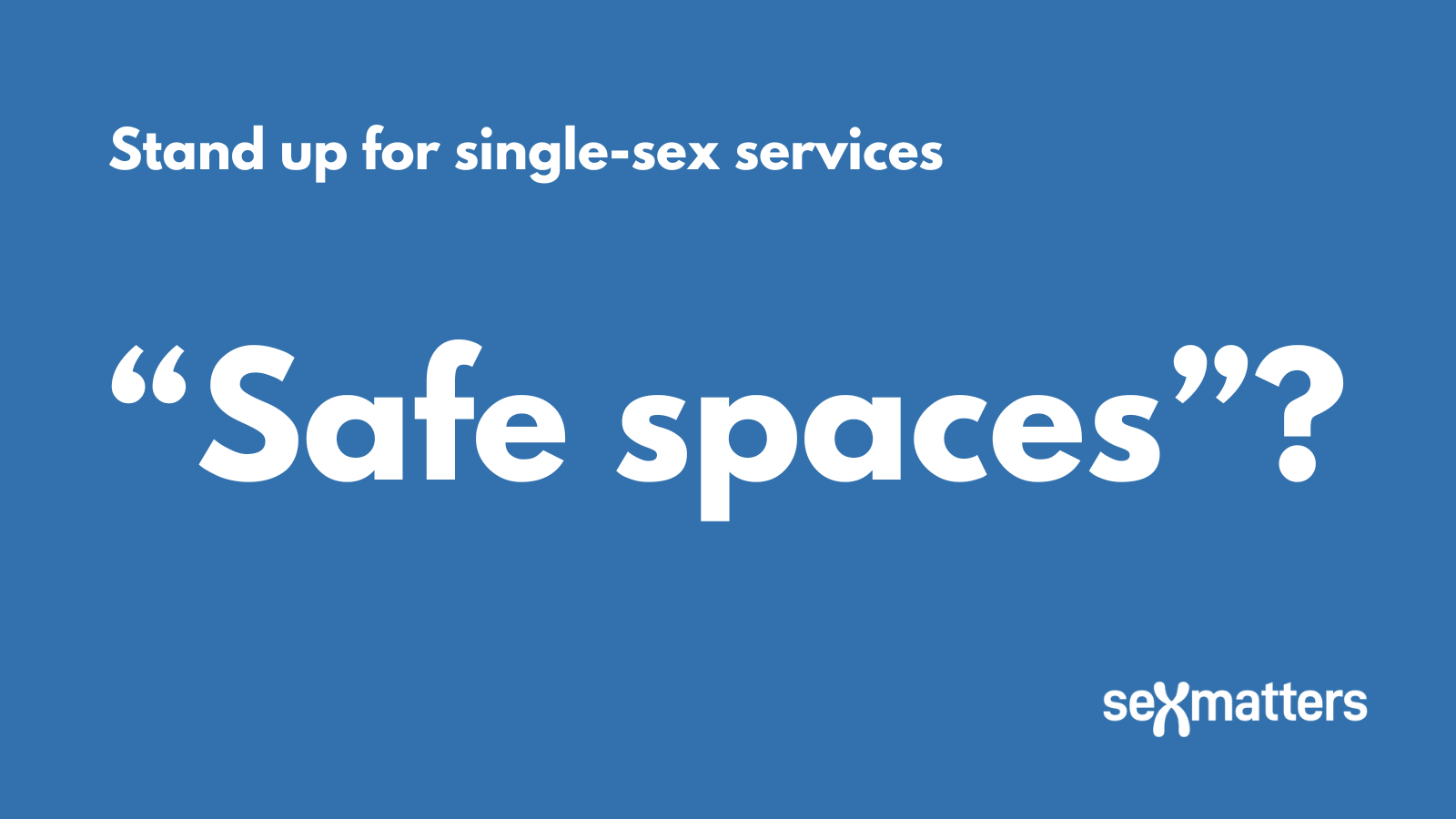This post is part of the Stand up for single-sex services campaign |
Why this is not about “safe spaces”

Sir Keir Starmer keeps talking about “safe” spaces instead of “single-sex” spaces. He said it most recently on LBC, although he also said “single-sex” when referring to NHS policy on hospital wards.
The problem with talking about “safe spaces” is that it gives the appearance of protecting women’s rights while avoiding giving the clear and necessary message that men – however they dress, whatever pronouns they use, whatever cosmetic surgery they have and however strongly they feel that they are women inside – should not try to use spaces provided for the dignity and privacy of actual women.
The Equality Act provides for “single and separate sex services”, which encompass everything from toilets, changing rooms and showers to sex-specific healthcare clinics, support groups for women and men and women’s refuges. There are also provisions for shared sleeping accommodation “which for reasons of privacy should be used only by persons of the same sex”.
These are all provisions that allow services to be provided on the basis of sex: divided between “male” and “female”, not between “safe” and “unsafe”.
Talking about “safe spaces” for women does not reflect the Equality Act and gives the impression of something else altogether – rare, specialist spaces, for women at their most vulnerable, not the everyday spaces that women rely on for privacy, dignity and inclusion.
There is no mention of “safe spaces” in the Equality Act.
It is important to be clear that what are needed are single-sex services and if you allow men into services that were previously provided for women then those are not single-sex services, they are mixed-sex.
Politicians who want to reassure women that they are taking seriously the questions about protecting their rights and making the Equality Act clear should talk about single-sex services.
- The Equality and Human Rights Commission has written guidance for providers of separate-sex and single-sex services.
- The case law makes it clear that single-sex services are lawful.
